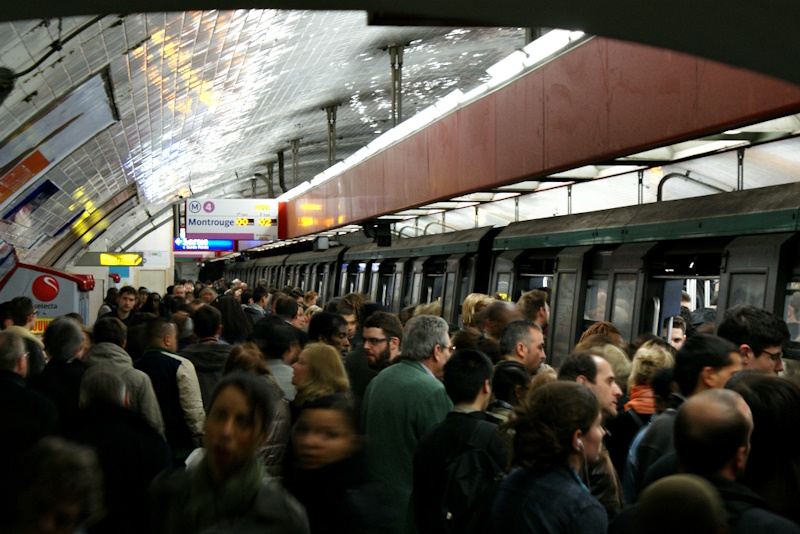7 French Habits That Americans Find Rude
Ever been in France and felt like people were being a little… off? It’s not just you. Some everyday French habits can come across as rude to Americans—even though they’re completely normal in France. Here are 10 cultural differences that often leave visitors confused.
Note: this post isn’t here to bash anyone, French or American! It’s just a fun look at cultural habits that sometimes lead to crossed wires (or raised eyebrows). If you’ve ever thought “rude!” while traveling, chances are it was just a cultural mismatch. No hard feelings, just a few laughs and a bit of perspective.
1. Not Smiling at Strangers

In the U.S., a smile is a friendly, almost automatic gesture, something you give to a passerby, a cashier, or someone making eye contact. In France, random smiles can be met with confusion or even suspicion. A smile is more intentional, reserved for people you actually know.
2. Keeping a Social Distance

Forget casual small talk. The French aren’t specially unfriendly, they just don’t see the need to chat with strangers. Cashiers won’t ask how your day is going, and commenting on someone’s shoes in line at the bakery would feel out of place. To Americans, this can feel distant or cold, but in France, it’s normal behavior.
3. Directness

French people typically don’t sugarcoat things. If your pronunciation is bad, they’ll tell you. If your outfit doesn’t suit you, expect to hear it. This honesty isn’t meant to be rude, it’s how they communicate. Americans, on the other hand, tend to soften criticism to spare feelings, which makes French bluntness feel jarring.
4. The ‘Uh-huh’ Sound in Conversations
French conversations come with an odd little sound, somewhere between a grunt and a hum. It’s their way of saying, “I’m listening.” Unlike the American “uh-huh,” which is soft and subtle, the French version can sound abrupt, almost like an interruption. To non-French speakers, it might seem impatient but it’s actually a sign of engagement.
5. Debating at the Dinner Table

In France, dinner is more than just about the food, it’s a battleground for ideas. Heated debates, sharp comebacks, and raised voices are all part of the experience. But once dessert arrives, it’s over. No grudges, no hurt feelings, just lively conversation. In the U.S., a debate like this could ruin the evening, but in France, it’s just part of the fun.
6. A Negative Slant in Speech
Ask a French person if they like something, and you might hear “pas mal” (“not bad”). That actually means they like it! Compliments tend to be understated, which can confuse Americans used to enthusiastic praise. The French also tend to frame responses negatively, even when they agree. Instead of saying “yes,” they might say “c’est pas faux” (“it’s not false”), which actually means “that’s true.”
7. Not Picking Up After Their Dogs

Paris has come a long way, but dog poop on sidewalks is still a thing. Some owners don’t bother picking up after their pets, especially if it’s on the grass. While many French cities provide free waste bags, enforcement is lax. In the U.S., leaving dog messes behind would get you dirty looks – or worse, a fine.
8. Rarely Saying ‘Excuse Me’

In a crowded French metro, someone might brush past you without a word. While Americans instinctively say “excuse me” for even minor bumps, the French don’t always see the need. If no real harm was done, why apologize?
9. Speaking Their Mind About Parenting

French people have no issue correcting someone else’s child. Whether it’s telling a kid to be quiet on a train or reminding a parent to put a hat on their baby, unsolicited advice is fair game. Americans generally see parenting as private, so this level of involvement can feel intrusive. In France, it’s completely normal.
10. Interrupting in Conversations
In France, cutting someone off mid-sentence isn’t always rude, it’s a sign of engagement. A lively discussion often means people speak over each other, eager to share their thoughts. In the U.S., this would be seen as disrespectful or rude, but in France, waiting too long for a pause might mean losing your turn to speak.
11. Ignoring Lines (Sometimes)

The French do line up, but not always in the orderly way Americans expect. At bakeries, bus stops, or market stalls, there’s often a subtle, unspoken system where people inch forward or position themselves strategically rather than forming a strict queue. If you wait too passively, you might get skipped.
